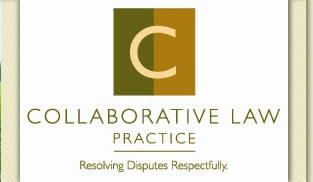Mary S. Timpany, Esq. LLC Collaborative Lawyer and Mediator |
|
 What is Collaborative Law?
Why Use the
Collaborative Process?
• You, the Client, are in charge. The parties control the proceedings. Your
destiny (and that of your family) is not in the hands of someone
else (the court). The
process is empowering, informative, and less stressful than going
to court. You are a vital part of the settlement team and you will
arrive at a resolution that you agree with.
•
Collaborative Professionals Each party has a skilled family lawyer trained
in and committed to the collaborative process of settling issues
without resorting to the court.
Divorce coaches and financial planners also help during the
process and are utilized jointly by the parties, avoiding the need
for separate sets of experts.
•
Cooperative Approach You are each represented and supported by your
own lawyer. You and
your lawyer can cooperate with the other party and his or her
lawyer in resolving your issues.
•
Avoid Court Everyone can focus on arriving at a settlement
without the constant threat of “going to court.”
Issues that arise can be dealt with quickly, without
waiting for the court to schedule a hearing in a few weeks or
months.
•
Can Be Less Costly The Collaborative process is generally less
time-consuming and less costly than court conciliations, hearings
and trials. You are in charge of the process, so you can decide
how quickly you want it to proceed.
•
Deals with Underlying Issues As part of the process, the issues underlying
the dispute can be addressed with the use of skilled
professionals. If you
have children, it is in their best interests for you to be able to
deal with those issues and communicate respectfully with your
partner in regard to your children.
•
Achieves Results The Collaborative process works if problem
solving and the future is more important than fighting, and you
want solutions that are fair and agreeable to all parties. How Does the Collaborative Process Work?
•
It’s a Series of Meetings. You attend informal meetings with your attorney,
the other party and his or her attorney, where the future
well-being of you and your family is the number one goal.
The issues to be addressed are decided and agreed upon in
advance.
•
Information Exchange Each party exchanges information in a complete,
open and honest way, in an informal setting.
Financial information is shared with a financial
professional who can help the parties maximize their settlement
choices.
•
Problems Get Solved. You will use creative problem-solving techniques
to help you resolve immediate issues and ultimately produce a
settlement agreement tailored to the needs of you and your family.
Because the process is not adversarial, everyone is treated
as part of a settlement team, including the attorneys.
•
Your Attorney is Focused on Settlement, Not Court. The lawyers have a strong incentive to succeed
in helping you achieve a settlement, because otherwise they must
withdraw from representing you.
Both attorneys are focused on the process as well
as the outcome. They
are committed to finding constructive ways to achieve a settlement
that will work best in your situation.
•
When the Process Does Not Work In the event the parties are unable to reach a
settlement through the Collaborative process, the attorneys must
withdraw from the case, and each party is then free to hire a
trial attorney to pursue the matter in court. This gives each
party further incentive to work together to resolve the issues
without going to court.
How Do I Get Started?
•
Talk
with the other party about the Collaborative process.
•
Meet with your Collaborative attorney to discuss the details of
your situation and begin the collaborative process.
For more information on Collaborative Law, and to locate a local collaboratively trained professional, please go to these links: • International Academy of Collaborative Professionals
Copyright 2020 Mary S. Timpany, Esq., LLC |
|